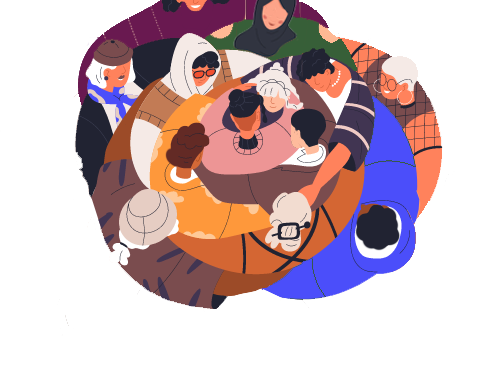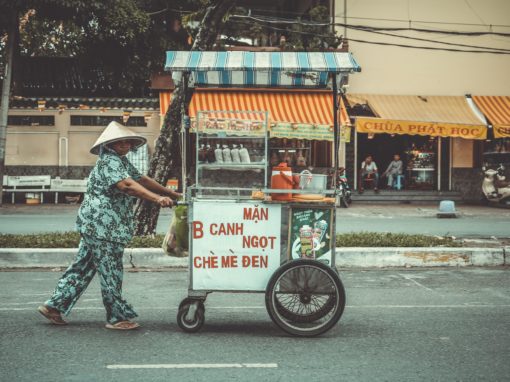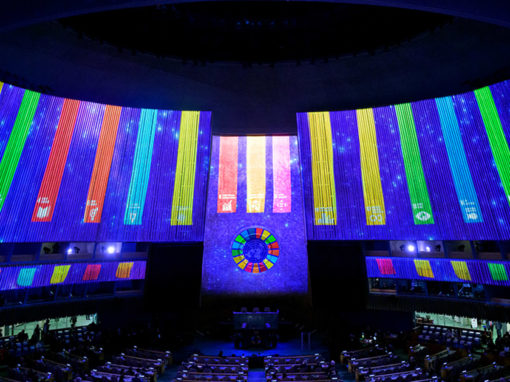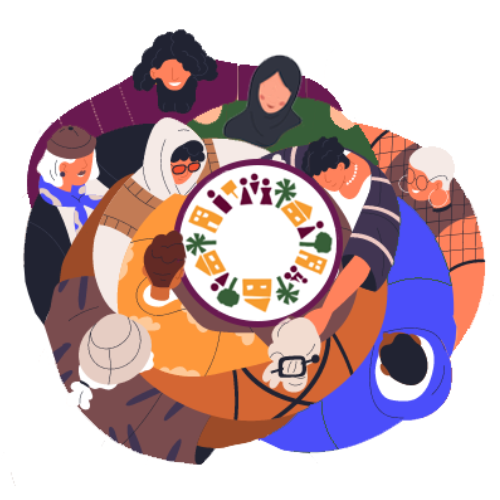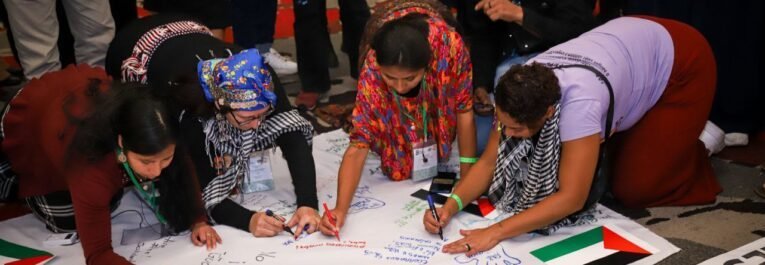Résumé
L’urbanisme féministe comme horizon pour repenser l’aménagement et le développement territorial et urbain avec un regard critique, et proposer des voies alternatives pour la reconstruction des villes, pour une meilleure durabilité et qualité de vie.
Article de: Habitat and Gender Commission of Habitar Argentina[i]
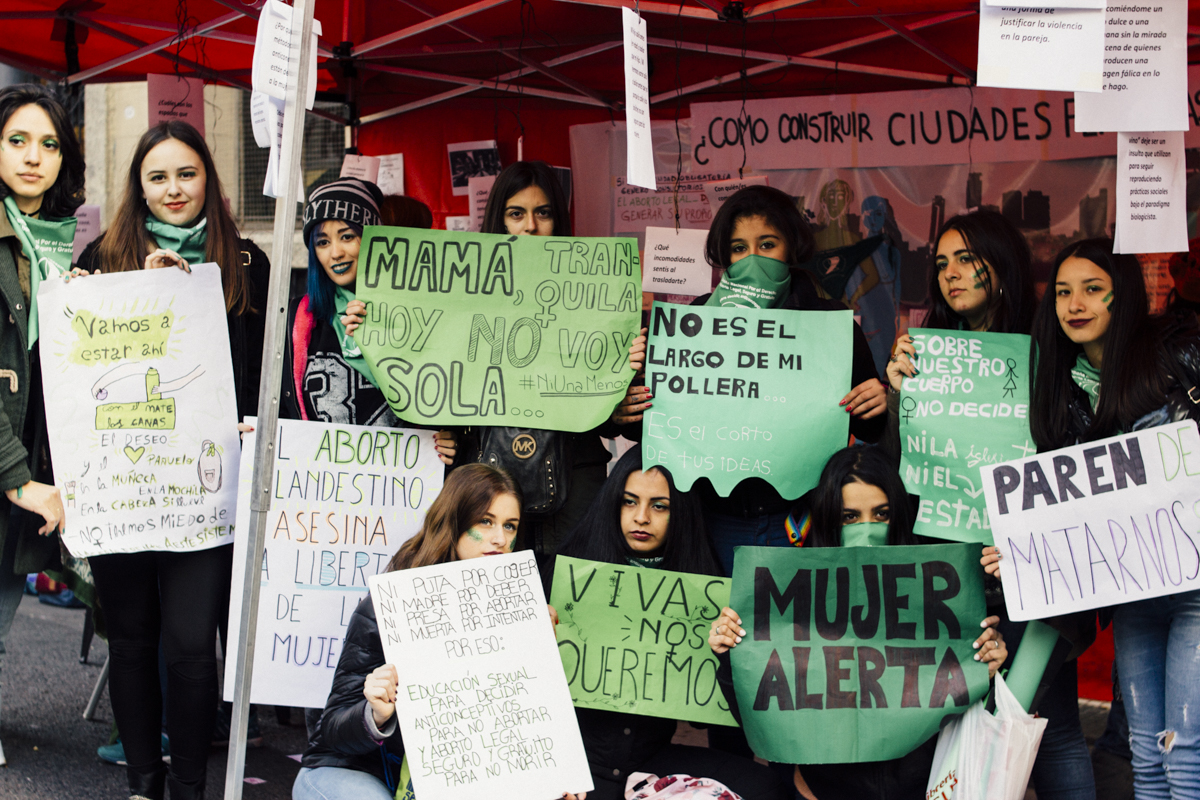
Photo: Vigilia_Congreso-91
The Habitat and Gender Commission arose within the Habitar Argentina space, when a group of women from different organizations met in Habitat III Quito, Ecuador (2016), around the debate on « Women and the Right to the City ». We feel called to shape this space, recognizing in common some experiences and practices in the territory that we have been developing from a gender perspective. We were motivated by the questioning power of feminist urbanism, as a horizon to critically rethink territorial-urban planning and development in general and propose alternatives for the reconstruction of cities for the sustainability of life. For this reason, it is necessary to include in our debates and proposals the perspective of women and dissident identities from the multiple feminist points of view, which is not homogeneous, recognizing their historical protagonism in the social production of habitat and in the work of sustaining the daily life of our territories.
We observe that more and more frequently a nominal inclusion, rhetoric, of the « gender perspective » in documents, declarations and commitments assumed by governments and many times also by some social organizations in their work programs. Even so, their inclusion in debates on urban development and the right to a decent habitat, in general, is very weak. Not only because there is no progress on concrete proposals, but also because the differences and diversities of the group of women (social, cultural, age, ethnic, religious or sexual orientation diversity) do not appear permeated in the proposals to intervene in the problem. For this reason, we believe that it is necessary to strengthen the spaces for collective and territorial discussions that aim to include this view in the construction of a dignified habitat. Only by including the active participation of women in these spaces and in decision-making is possible to advance in the deepening of democratic processes in our region, and in the construction of inclusive cities for all.
Towards Feminist Cities and Territories
The city questioned from feminism puts in discussion the lack of full rights and the ways/devices in which we are considered citizens, and we inhabit the city. The agenda of urban feminisms is a diverse, radical and implacable agenda when it comes to posing the right to a life without violence. In this sense, we believe that it is necessary to take into account certain critical points proposed by this view, when thinking and rethinking interventions around habitat and territories.
The persistent sexual division of labor and care work. We need to question and deconstruct care practices as women’s sole responsibility, and as unpaid work. We must facilitate the democratization of these tasks, preventing public policies, urban equipment and services from strengthening and reinforcing the reproductive role of women, making it difficult for them to participate in the paid labor market, in political participation, in the use and enjoyment of the city. In addition, we do this work of care and social reproduction in contexts of housing emergency, ecological deterioration, precariousness of infrastructure and public services; all issues that make us vulnerableus and overload us greatly. We need comprehensive care policies, services and care facilities that are geographically close, reliable, flexible and effective.
Urban poverty is increasingly feminized. The number of single-mother households has been increasing in recent decades, especially among the lowest income groups. This data cannot be ignored when thinking about housing policies and neighborhood equipment.
The difference in use and transits through public space by men, women, and other feminities. The socially and culturally constructed differences and hierarchies between the diversity of females and males are embodied in the territories. The sensation that public realm is alien and dangerous – with sexual violence as an ever-present possibility – restricts and conditions the use and enjoyment of public spaces by women. There conditions are even cruder for some feminities, in particular because of their way of living/transiting the city -lesbians, transgender people, migrants, young people from popular sectors. Not considering how these differences violate basic rights contributes to reproducing these inequalities.
Women are the protagonists in the struggles for the habitat and the right to the city. A protagonism that is often invisible, in spite of women being the ones who historically sustain the daily life of neighborhoods and social and community organizations, without pay or rest. This is a reality that in recent years has gained greater recognition at the informal level. However, in the spaces of political representation, and in hierarchical and reference positions in social organizations, cooperatives, and so forth, continue to be occupied mostly by men. This leaves women in charge of roles and tasks not only with less social-political recognition but also with greater workload. Promote political participation and build conditions of possibility for the real recognition of the contribution of women and incorporate in the working groups of the processes of urbanization of the territories; the gaze, the routes and the knowledge of women must become fundamental to give place to alternative forms of building decent habitat for all.
Patriarchal violence, in all its manifestations, violates women’s right to the city. This includes the violence that we experience on the part of partners and ex-partners (some of which lead to femicide); institutional violence -including the criminalization and persecution of women who interrupt their pregnancies whether voluntarily or as spontaneous abortions; and street violence and sexual abuse/harassment in public spaces. These, among other manifestations of violence, place limits on women’s autonomy, often restricting their mobility and their possibilities of access to health, education, political participation, work and recreation. Violence threatens women’s lives and ability to make decisions. The design and use of cities, far from being neutral, often contribute to perpetuating these violations of rights.
Within the framework of these critical points, the commission has promoted different intervention and advocacy strategies, giving priority to three areas: a) in the political-parliamentary sphere (public policies, laws, regulations); b) in the public sphere; and c) at a territorial-community level that deal with and transversally converge experiences, knowledge, debates and proposals associated with rethinking and building feminist cities and territories. Some of the initiatives carried out in this sense are:
-Contributions to the National Consensus for a Decent Habitat, framework document of the Habitar Argentina area, from a gender perspective, 2017
-Presentation of the committee at discussion days of candidates for national legislators, October 2017
-Seminars « Women and City » (In) territorial justice, organized by Ciscsa- Day of debate and training of the collective, 2017-2018
-Contributions to the Trigger Document and contributions for the coordination and systematization of the Axis Right to the City: urban violence, housing, mobility. Women’s contribution to good living in cities and feminist resistance. 14th EFLAC- Montevideo, Uruguay 2017
-Workshop Our neighborhoods, our territories, Building feminist views of and from the right of women to the city. 14° EFLAC- Montevideo, Uruguay 2017
-ENM Chaco 2017 Participation in workshop « Women and Habitat ».
-8M participation in preparatory assemblies of the document for the march. Participation in the day.
-Workshop Our neighborhoods, our territories, Building feminist views of and from women’s right to the city, at the World Social Forum, Salvador de Bahia, Brazil, March 2018.
-Women and Participation in Social Organizations. Movimiento por la Moradia Popular, at the World Social Forum, Salvador de Bahia, Brazil, March 2018.
-Contributions of the Commission from a PG to the project in debate of Dominial Regularization and Urban Integration – May 2018
-Feminist city – Right to the city in the framework of the vigil and support for the bill on the voluntary interruption of pregnancy. « Our body our first territory » June 2018
[i] http://www.habitarargentina.org.ar/. The following are the members of the commission: Ando Habitando (Mendoza), Asociación Civil Canoa (Santa Fe), Ciscsa(Córdoba), Madre Tierra (Conurbano Bonaerense), Federación de Cooperativas “Todos juntos” (Ciudad de Buenos Aires), SEDECA (Buenos Aires), Grupo de investigación de Procesos Urbanos y Programa de Extensión Géneros y Sexualidades (Universidad Nacional de Tierra del Fuego), La Ria (Ciudad de Buenos Aires, Ushuaia, Rio Grande), MOI (Tierra del Fuego), Proyecto Habitar (Ciudad de Buenos Aires). Correo de contacto: comisionhabitatygenero@gmail.com


